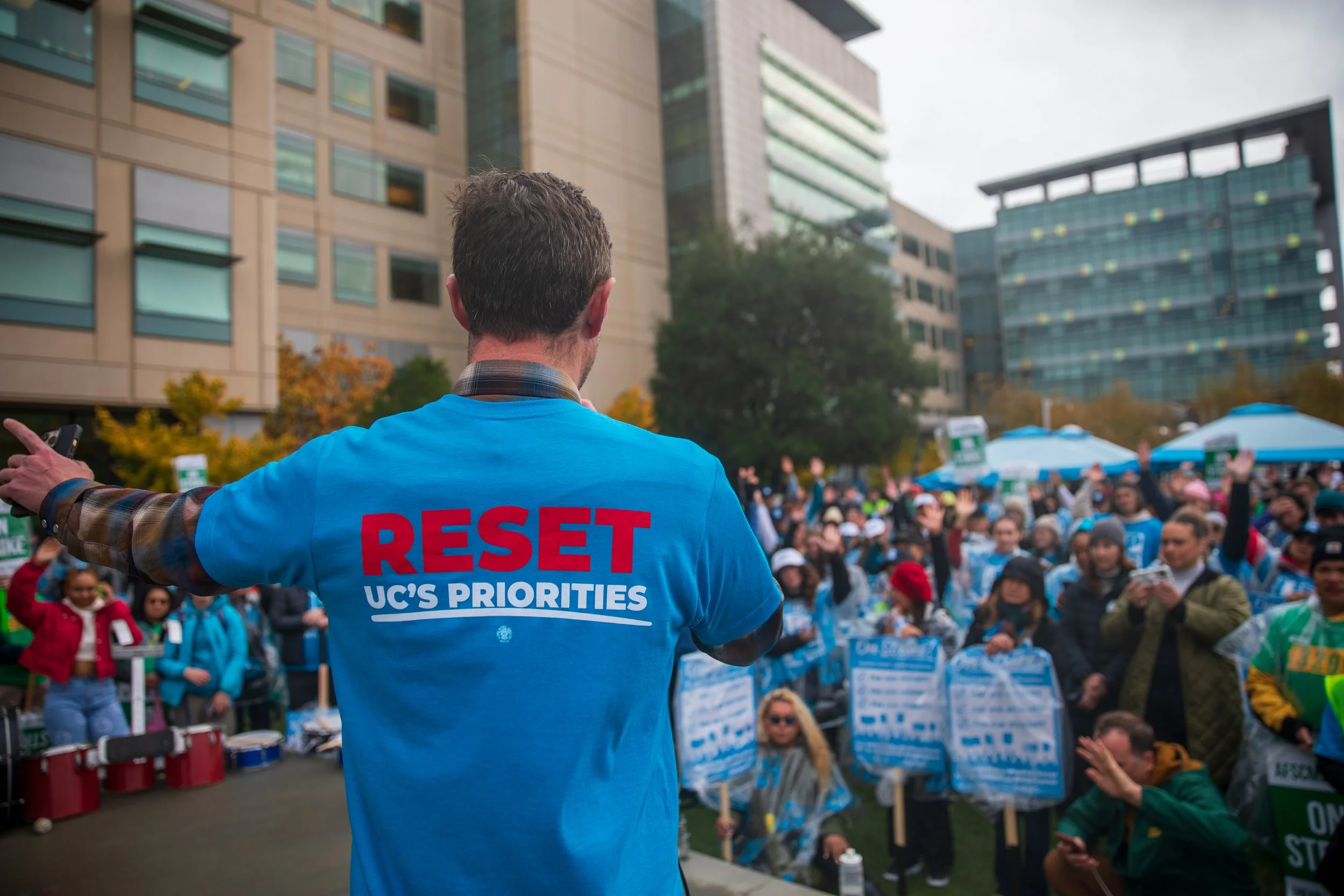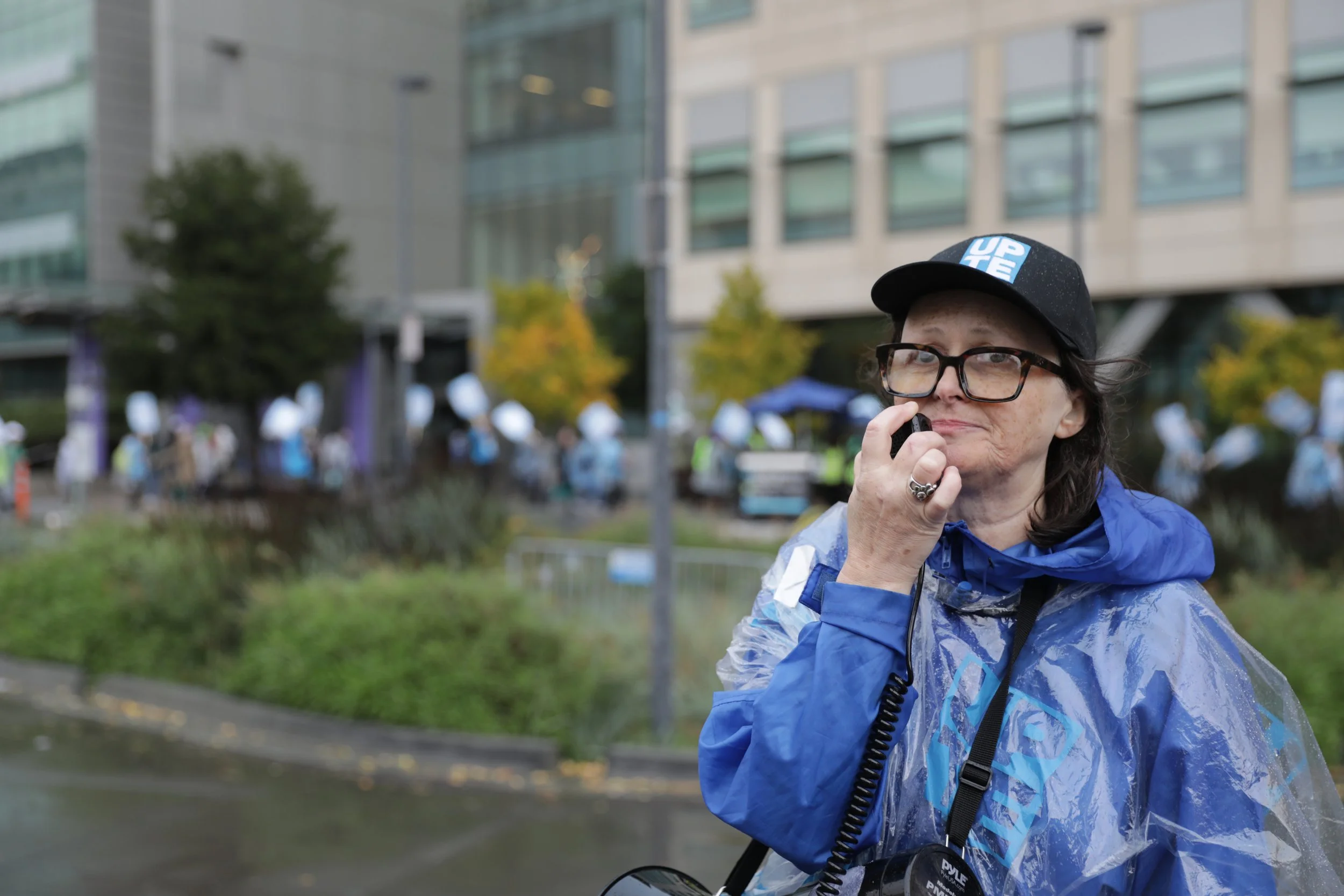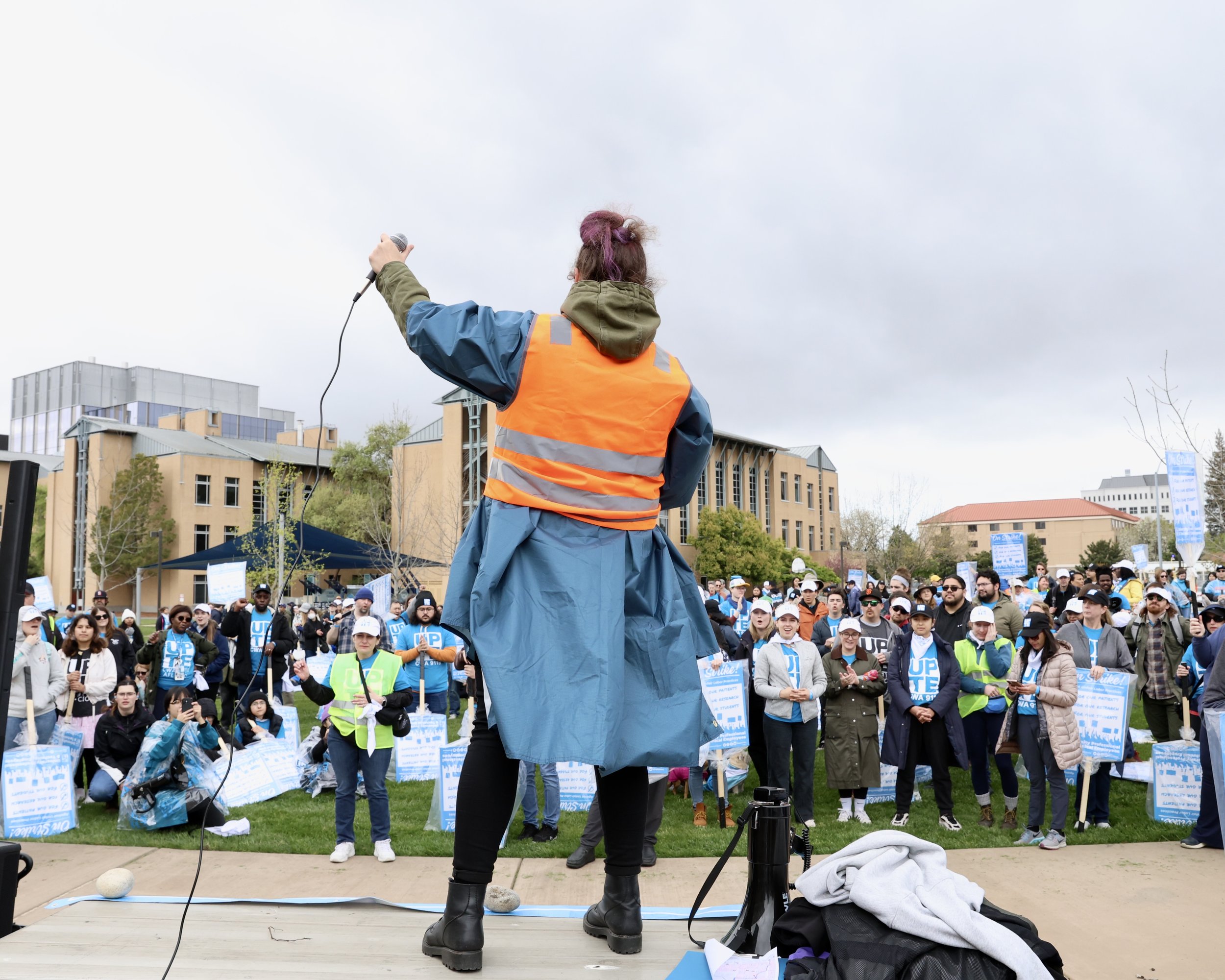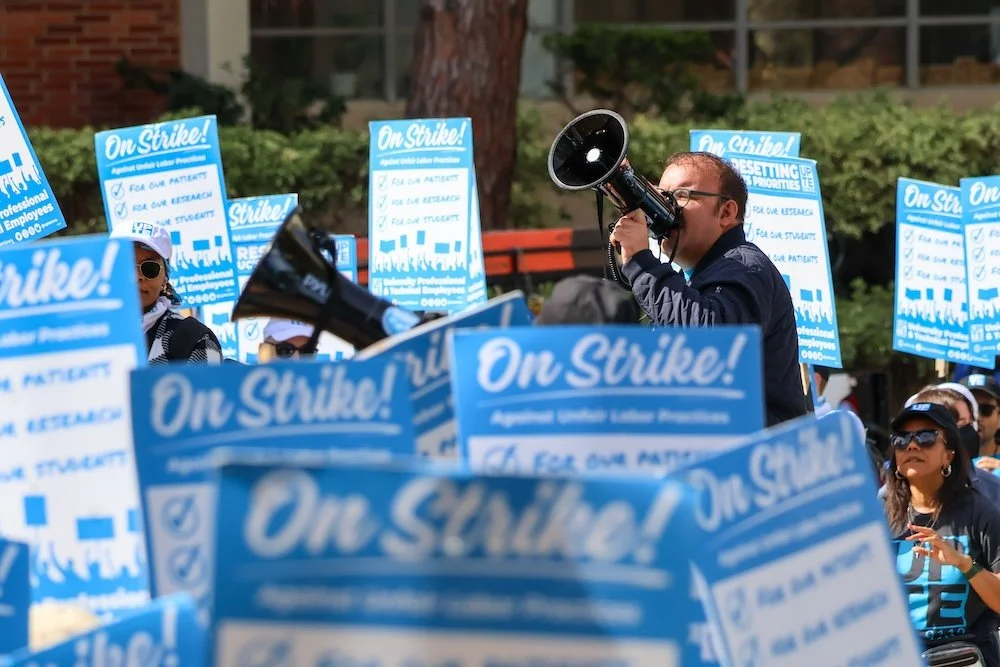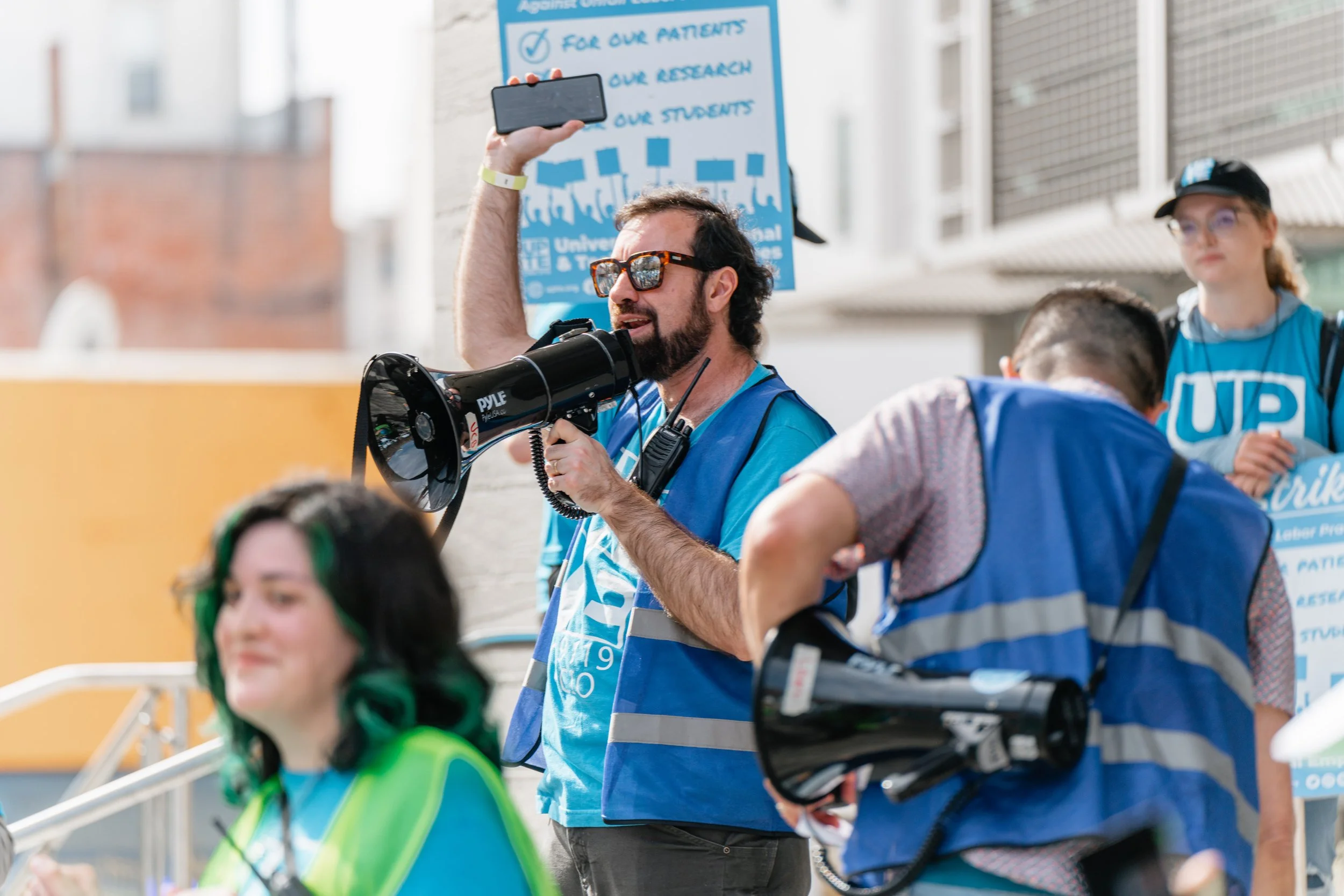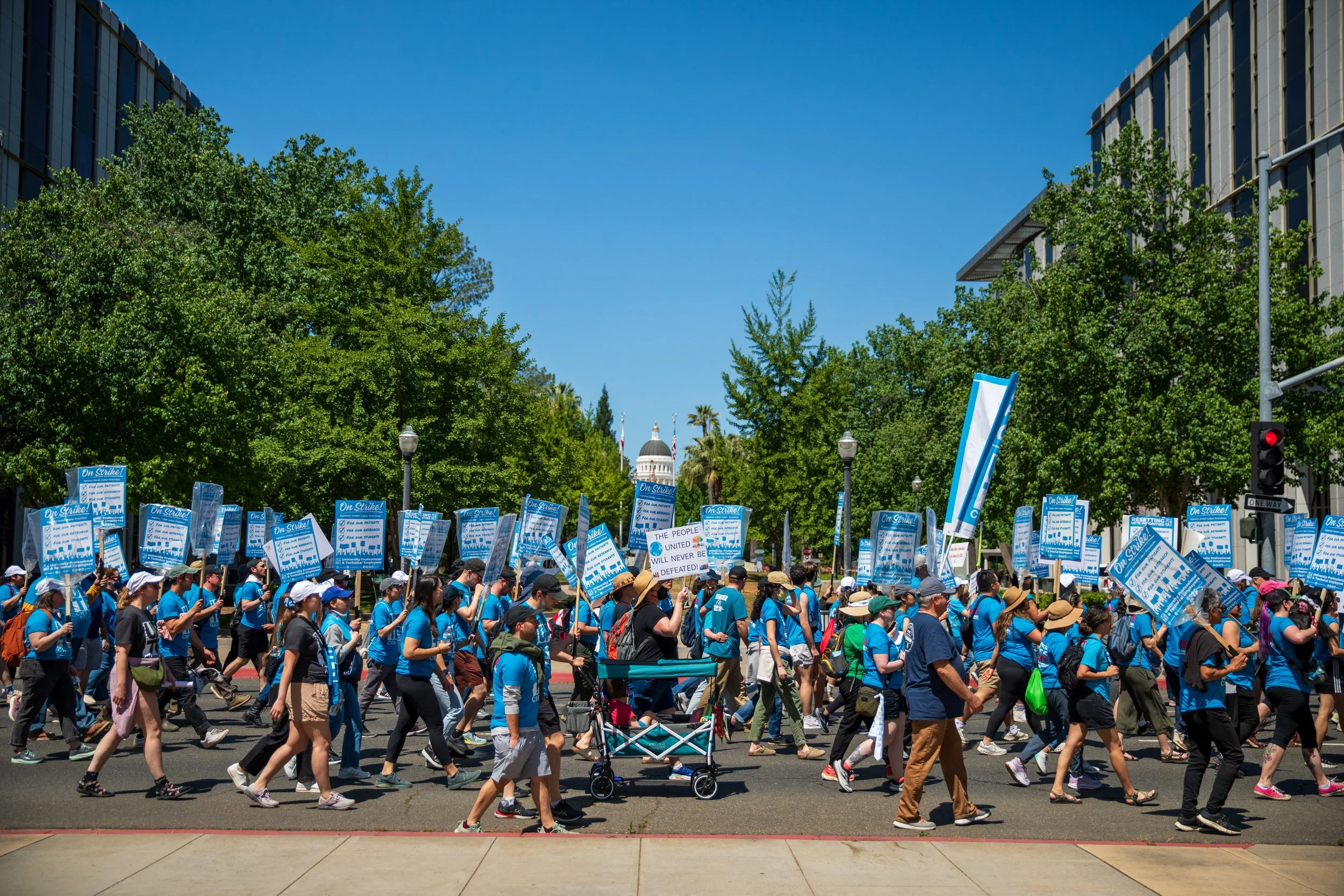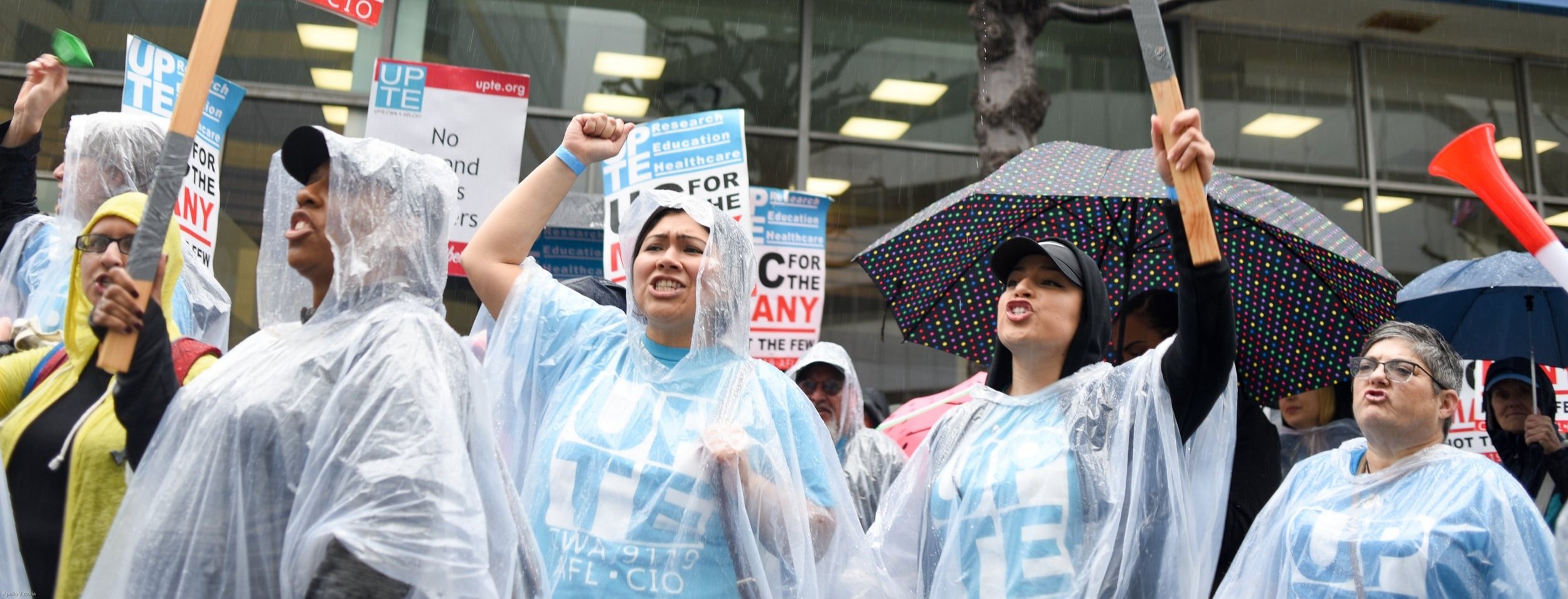

TA ratified by 98%
nearly 12k votes!
Seventeen months of bargaining. Years of organizing. One goal: reset UC’s priorities to better serve all Californians. By 98%, UPTE members have officially ratified our next contract. Our ratification vote means our new contract terms are effective immediately, with the following timelines:
The UPTE Floating Holiday will be available within 120 days of ratification; we are awaiting UC’s confirmation of when it will be available for use.
Combined Pregnancy & Childcaring Leave: we are awaiting UC’s response confirming that those who are already on Pregnancy Disability Leave can remain on leave by combining this with the new provisions
Lump sums for those who were eligible for a January 2025 step but were at the top of their scale will be paid within 120 days
Lawrence Berkeley National Laboratory is processing the October 2025 raises. Salary ranges will be adjusted by 7%, so everyone currently within their title’s salary range will receive the full 7% increase. In future years, salary ranges will also be moved by the full amount of our raise.
The following will be processed within 120 days, retroactive to the first full pay period following ratification (November 23rd for bi-weekly pay, December 1 for monthly pay)
Step placement for workers in Dietitian 4, BHC/BHPP 1-4, and Optometrist titles
Adjustment of scales with steps below $25/hr
Bargaining Updates
Find a full archive of updates from UPTE’s ongoing negotiations with the University of California at upte.org/updates.
Read our 2024 – 2025 UPTE Contract Platform below
Over 8,000 UPTE members came together in 2023 to discuss our priorities for the changes we would like to see at the University of California. This effort produced our UPTE Contract Platform, a unified statement of the priorities we brought to contract bargaining with the University of California. From April 4 to 18, 2024, nearly 9,500 UPTE members across the state voted overwhelmingly to ratify this platform, with over 99% voting in favor.
-
Significant Raises: significant across-the-board raises that make up for and keep up with inflation, equity with market pay where titles have fallen behind, and annual step increases for every worker. Additional financial assistance to address the ballooning cost of housing near every campus.
Step adjustment for long term staff: Career staff should be increased to at least the step matching years of service or relevant experience - eg. 8 years = step 8 (or step 4.5 in ½ steps). Additional steps for workers who have been at UC for many years and who are already at the top step of their scale.
Evening, night, weekend, and language differentials: Increased differentials and improved on-call pay that will reward and incentivize night, evening, and weekend shifts. Differential pay for staff who use multi-lingual abilities in their duties.
Guaranteed reclassification and career progression: Guarantee appropriate classification based on actual duties assigned, as well as clear pathways to higher-level classifications.
Parking/transit pass/carpool stipends: Limit parking costs, free public transportation, and facilitate/incentivize carpooling, cycling, and other forms of transportation.
Pay for licensure & certification: UC will cover all costs of licensure and certifications that are required for your job.
Pay equity with new hires: Pay for existing employees will be increased if new hires are paid more than current employees with similar experience in the same titles.
Free tuition for UC employees & family
More education time, conference & continuing ed pay: Additional time and financial assistance for continuing education, conferences, and other professional development
-
Increased accruals, right to use and cash out vacation time: Increased vacation accruals, improved rights to use your vacation accruals, and the right to cash out vacation accruals.
Reduced workweek: Right to transition to 36 hour workweek with no reduction in pay, benefits, retirement or leave accruals.
Remote, hybrid, and flexible schedules: Require departmental negotiation of remote work, hybrid work, flexible scheduling, and/or voluntary reduction in appointments.
Expanded Parental, Bereavement, and Life-Balance Leave: Provide additional, separate banks of leave for bereavement and work-life balance/mental health.
Birthing, adoption, fostering or child-care assistance: Provide either stipends or reimbursement for child birth, adoption, fostering, or child care.
-
Strengthen layoff protections: Provide improved alternatives to layoffs and strengthen layoff protections by seniority.
Protecting union work: Move all appropriate titles into UPTE and end outsourcing of our work. Allow for more employees to act as union representatives in order to enforce these and other standards.
Patient ratios/workload limits: Provide reasonable limits on caseload and workload, based on existing industry standards.
Scheduling and promotions by seniority: Schedules based on years of service at UC, and to guarantee open positions to the qualified applicant with the most years of service at UC.
Per diem/part-time conversion: Guarantee career conversion to part-time workers at the employee’s request.

How did we ratify our tentative agreement?
Check out these links from earlier moments in our campaign to reset UC’s priorities and understand the context that led to our tentative agreement.


